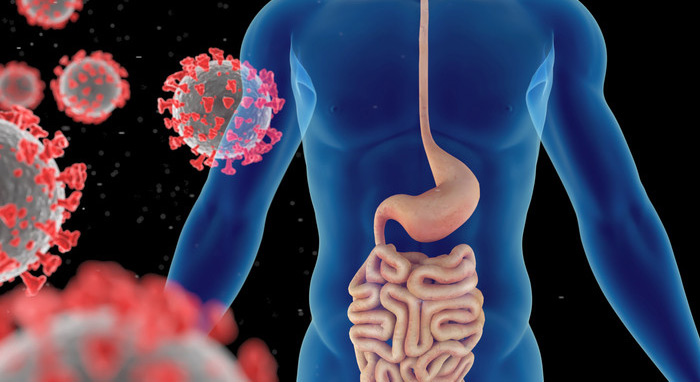If you have recovered from Covid-19 infections few months back or even year a back, and facing recurring gastrointestinal issues, the virus could be the culprit behind damaging your gut health.
According to an analysis of federal health data by researchers at Washington University School of Medicine in St. Louis and the Veterans Affairs St. Louis Health Care system, Covid-19 infection can increase risk of long-term gastrointestinal issues. From liver issues, acute pancreatitis, irritable bowel syndrome, acid reflux, and ulcers in the lining of the stomach or upper intestine, one may face a range of gut health problems. Nausea, diarrhoea, vomiting, loss of appetite, abdominal pain, bloating are some of the symptoms that can linger even a year after Covid infection.
It is important to take charge of your gut health and follow measures to improve your digestive wellness.
“A post-Covid gut health regimen involves a nutrient-rich, balanced diet, the inclusion of probiotics, hydration, gradual reintroduction of foods, avoidance of triggers, limited processed foods, stress management, and open communication with healthcare providers for personalized guidance. By prioritizing these aspects, individuals can support their digestive system in the recovery phase and promote overall wellness,” says Dr Gaurav Kumar Patil, consultant gastroenterology, Sir H. N. Reliance Foundation Hospital.
NUTRITION TIPS TO BOOST GUT HEALTH POST COVID
Dr Patil says maintaining optimal gut health post-Covid infection is crucial for overall well-being.
If you have been experiencing gastrointestinal symptoms or complications, you must follow these tips to support your digestive system, as suggested by Dr Patil.
1. Balanced diet: Focus on a well-balanced diet rich in fruits, vegetables, whole grains, and lean proteins. These provide essential nutrients and promote a healthy gut microbiome, aiding in the recovery process.
2. Probiotics: Incorporate probiotic-rich foods like yoghurt, kefir, sauerkraut, and kimchi into your diet. Probiotics can help restore the balance of beneficial bacteria in the gut, which may have been disrupted during the infection.
3. Hydration: Adequate hydration is vital for gut health. Drink plenty of water to support digestion and prevent dehydration, especially if diarrhoea was a symptom during the infection.
4. Gradual reintroduction of foods: If you experienced a loss of appetite or aversion to certain foods during Covid-19, gradually reintroduce them into your diet. This ensures a diverse range of nutrients for recovery.
5. Avoid trigger foods: Identify and avoid foods that may exacerbate gastrointestinal symptoms. For some, this might include spicy or greasy foods, while others may need to limit certain high-fibre foods initially.
6. Limit processed foods: Minimize the intake of processed and refined foods, as they may contribute to inflammation. Opt for whole, nutrient-dense options for better gut health.
7. Manage stress: Chronic stress can impact gut health. Engage in stress-reducing activities such as meditation, yoga, or deep breathing exercises to support overall well-being.
8. Consult healthcare professionals: Communicate any persistent or worsening gastrointestinal symptoms with healthcare providers. They can assess your specific situation and provide tailored recommendations based on your recovery needs.
Considering the potential impact of medications used in Covid-19 treatment, individuals should be mindful of any lingering side effects and discuss them with healthcare professionals. Adjustments to the diet and lifestyle can play a significant role in nurturing gut health after the infection.

